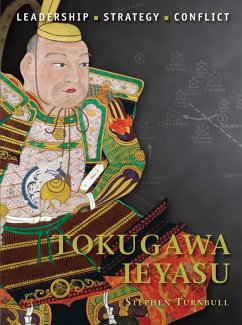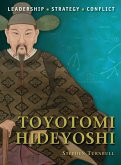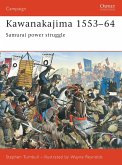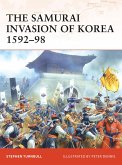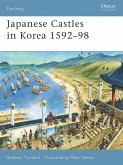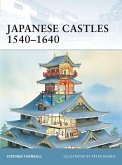Towards the end of the 16th century three outstanding commanders brought Japan's century of civil wars to an end, but it was Tokugawa Ieyasu who was to ensure a lasting peace.
In terms of his strategic and political achievements Ieyasu ranks as Japan's greatest samurai commander. Ieyasu possessed the rare wisdom of knowing who should be an ally and who was an enemy, a key skill for a successful military leader. Ieyasu's crowning victory at Sekigahara depended on the defection to his side of Kobayakawa Hideaki, and the absence from the scene of Ieyasu's son Hidetada serves to illustrate how just once there was a failure in Ieyasu's otherwise classic strategic vision.
As Stephen Turnbull explores in this colour-illustrated volume, to establish his family as the ruling clan in Japan for the next two and a half centuries was abundant proof of his true greatness.
In terms of his strategic and political achievements Ieyasu ranks as Japan's greatest samurai commander. Ieyasu possessed the rare wisdom of knowing who should be an ally and who was an enemy, a key skill for a successful military leader. Ieyasu's crowning victory at Sekigahara depended on the defection to his side of Kobayakawa Hideaki, and the absence from the scene of Ieyasu's son Hidetada serves to illustrate how just once there was a failure in Ieyasu's otherwise classic strategic vision.
As Stephen Turnbull explores in this colour-illustrated volume, to establish his family as the ruling clan in Japan for the next two and a half centuries was abundant proof of his true greatness.

